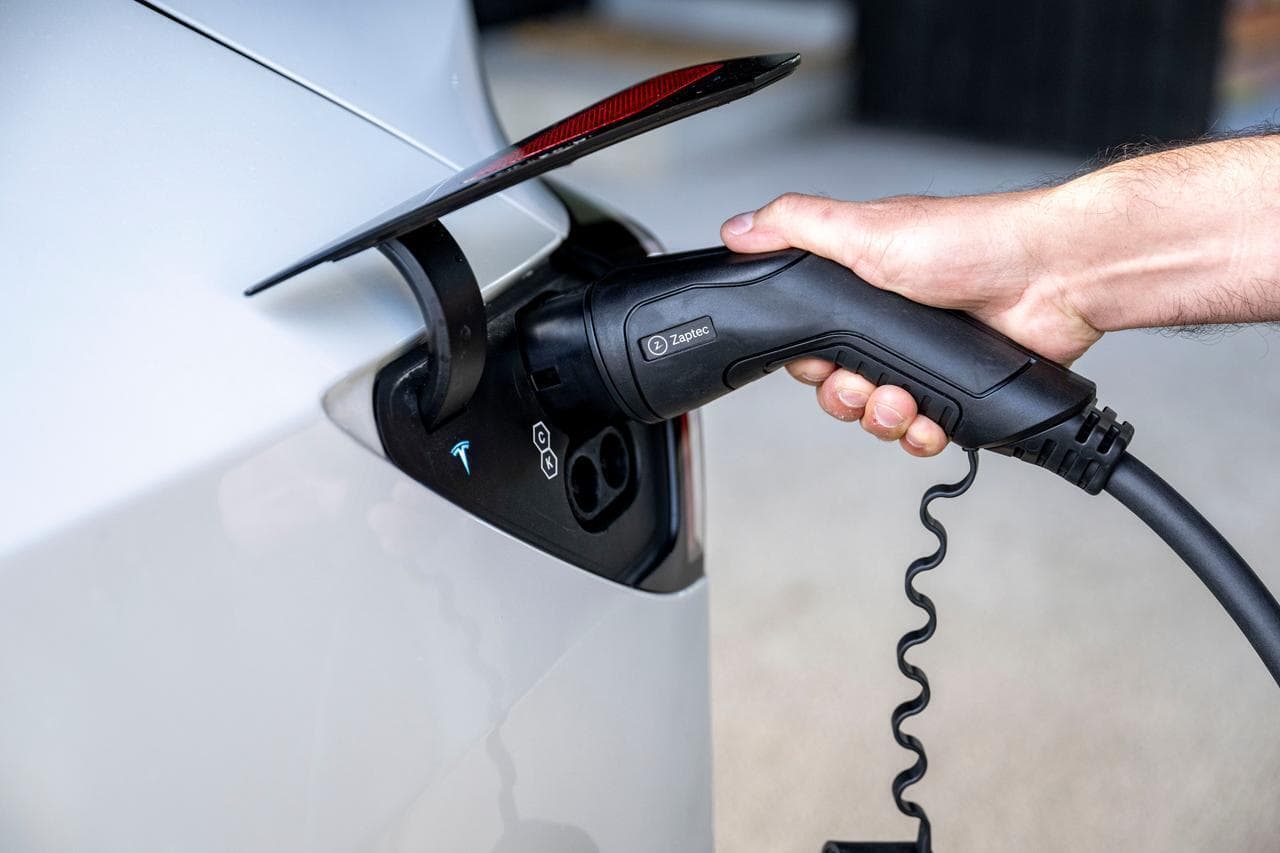Charging an electric car is very cheap. The state and / or your workplace will often subsidise your cost for EV charging.

How much does it cost to charge an electric car?
In short, charging an electric car can be very affordable.
This is still the case even if electricity prices go up a lot. Below are the figures for what it costs to charge an electric car versus spending money on petrol. In addition to saving money, you will also be protecting your local environment by choosing an electric car. When choosing your charging station, it is important to select a system that is future-oriented and that incorporates advanced system controls.
Range: The average range of an electric car/fossil fuel car
The sums use a range of 12,300 kilometres, but many drive further than this over the course of a year. The further you drive, the more you will save by using an electric car. Even this moderate range will see you save NOK 12,000 per year. Additionally, the service costs are usually lower on electric cars as there are fewer moving parts. Taxes are also lower – for instance, the traffic insurance tax (previously annual tax) is far lower for electric cars.
Electricity prices: Electricity in Norway currently costs a little under one krone per kWh
Electricity prices vary from year to year, and they are little higher in 2018 than in previous years. But only once they are extremely high will it stop paying to use an electric car. See the sums below. These use the figure NOK 1.10/kWh, but even with an extremely high electricity price, it will never pay financially to run a petrol or diesel car. If you are able to charge for free, e.g. at work, then it adds up even more.
Battery: Charging behaviour varies substantially depending on the size of battery in your electric car
If you have a big battery and only drive short distances, it will not be necessary to charge the car very often. There is another key element when it comes to charging lithium batteries: some experts claim that the smartest approach is to charge the battery to 80-90 per cent on a daily basis. This is to ensure the longest possible battery life. A good charger makes it easier to achieve this goal as opposed to charging using a standard plug socket, which is slow to charge and less safe. In order to comply with current laws, there are special requirements relating to fuses and amps. The exception to this is short-term charging, for instance when travelling.
Charging stations: Choosing the right charging station
It is important to think ahead and consider charging speeds when choosing a charging station. Time-of-use energy tariffs mean it will cost more to charge at different times of day. The result can be an electricity bill that is several hundred kroner more expensive every month. Zaptec supplies future-oriented charging stations with features that ensure you pay as little as possible to charge.
Housing cooperatives and joint owners: Time-of-use energy tariffs apply here too
Unfortunately, you cannot avoid time-of-use energy tariffs if you live in a housing cooperative or a joint ownership arrangement. You must consider charging as part of a larger charging system, which is precisely what Zaptec’s charging systems do. The price for charging that is achieved and the ability to expand the system are important to everyone living in a housing cooperative.